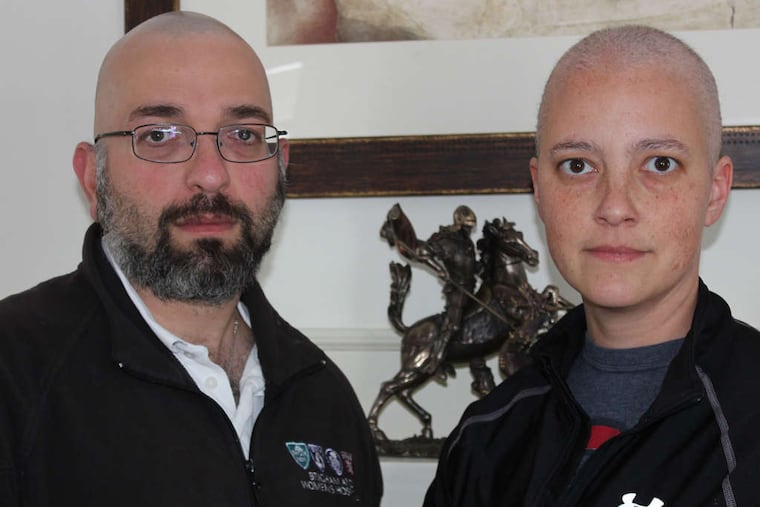FDA warns about device used in gynecologic procedure
The U.S. Food and Drug Administration on Thursday discouraged doctors from using a machine that makes it possible to remove uteruses and uterine fibroids through small incisions because of the risk that the approach will spread cancer.

The U.S. Food and Drug Administration on Thursday discouraged doctors from using a machine that makes it possible to remove uteruses and uterine fibroids through small incisions because of the risk that the approach will spread cancer.
The warning is a victory for a Philadelphia-trained physician couple - cardiothoracic surgeon Hooman Noorchashm and anesthesiologist Amy Reed - who campaigned extensively against use of the device. Reed discovered that she had stage-four leiomyosarcoma, an aggressive cancer, soon after having a hysterectomy and fibroid removal in Boston, where doctors used the device in a procedure known as laparoscopic power morcellation.
Noorchashm said there was no evidence that the disease had spread before the morcellator cut his wife's tumor into tiny pieces, spraying cancerous cells into her abdominal cavity.
Reed, a 40-year-old mother of six, had to have extensive surgery and has completed five of six rounds of chemotherapy. Noorchashm said he was optimistic about her progress.
He called the FDA's decision a "major step forward" and praised the agency for stepping in. He criticized organizations representing obstetricians and gynecologists for not doing so. "I find that completely astonishing," he said.
In what it called a "safety communication" Thursday, the FDA said it was discouraging use of laparoscopic power morcellation because it "poses a risk of spreading unsuspected cancerous tissue, notably uterine sarcomas, beyond the uterus."
Its analysis found that one in 350 women undergoing hysterectomy or myomectomy to remove what are believed to be fibroids do not know that they have uterine sarcoma. The morcellator could spread the cancerous tissue within the abdomen and pelvis, "significantly worsening the patient's likelihood of long-term survival."
It said there was no reliable way to determine before surgery whether the growth is cancerous.
Women, the FDA said, should be told of the risks and benefits of the procedure. There are alternatives.
The agency said it will convene a public meeting on laparoscopic power morcellation and will likely discuss a boxed warning. Several manufacturers make the devices.
According to the American Congress of Obstetricians and Gynecologists, 11 percent of the 500,000 hysterectomies each year in the United States involve morcellation as part of minimally invasive procedures. Such procedures reduce recovery time and complications.
The organization on Thursday released a statement saying it is "currently undertaking a thorough and deliberate review of the published scientific literature about power morcellation and malignancy in gynecology surgery. We greatly appreciate the urgency behind this issue."
Fibroids are noncancerous growths in the wall of the uterus. Most women develop them. Most don't cause problems, but others cause symptoms severe enough to require removal.
Some medical journals have criticized morcellation, and hospitals had begun restricting its use. Brigham and Women's Hospital, where Reed was treated, is among them.
Temple University Hospital in February announced that it would not use morcellation for large fibroids and would generally require an "isolation bag" that surrounds the tissue to prevent spread.
Enrique Hernandez, chair of the department of obstetrics, gynecology, and reproductive sciences at Temple, said the hospital does not have a power morcellator, which has a rotating tip. If they use morcellation, Temple doctors typically manually cut tissue with a scalpel while it's in the bag, he said, after they have pulled the fibroid to the incision.
"We don't want to cut any tumor within the abdominal cavity, period," Hernandez said.
He thinks the FDA ruling likely will mean the end of power morcellation.
@StaceyABurling